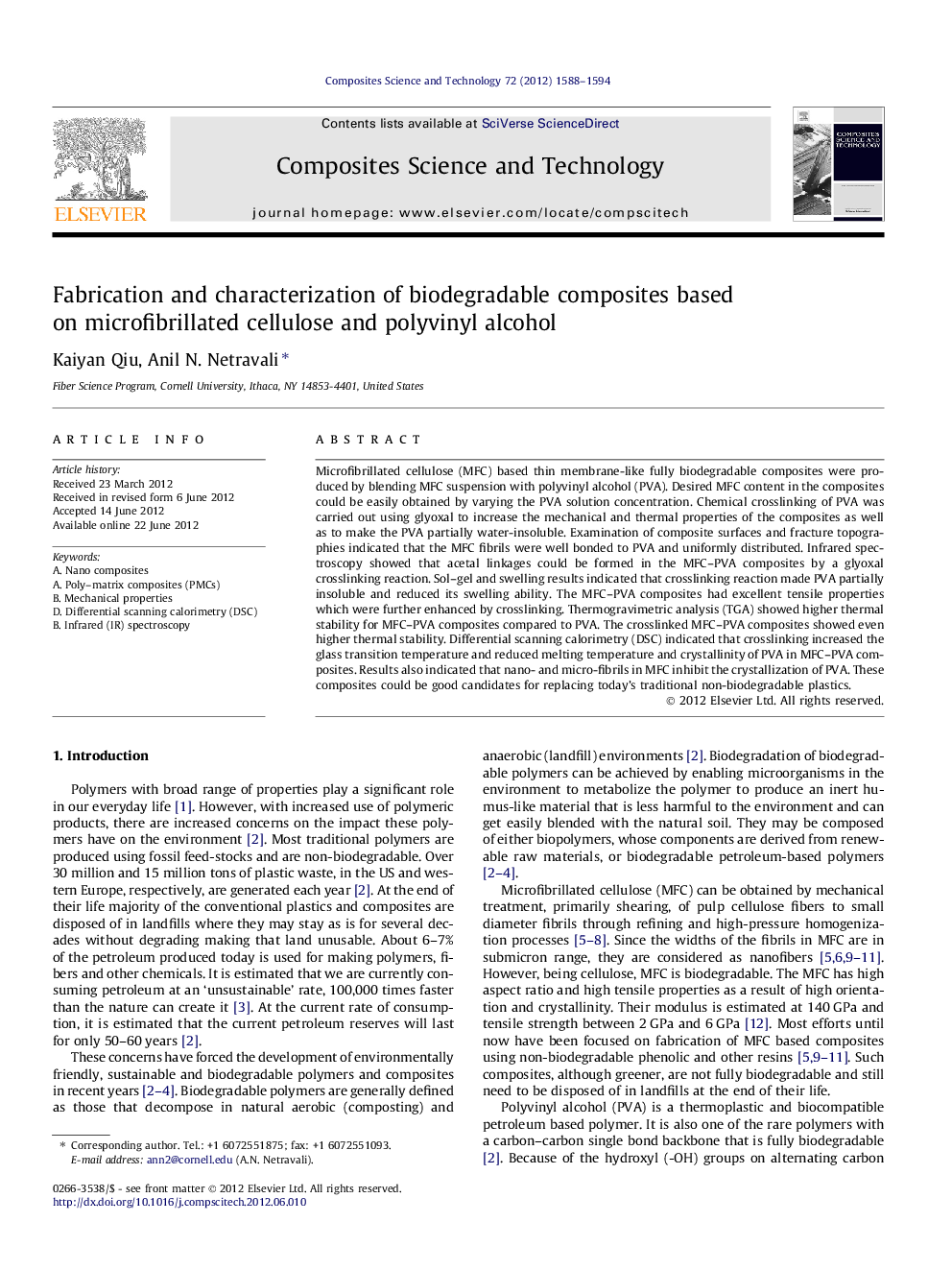| Article ID | Journal | Published Year | Pages | File Type |
|---|---|---|---|---|
| 10425091 | Composites Science and Technology | 2012 | 7 Pages |
Abstract
Microfibrillated cellulose (MFC) based thin membrane-like fully biodegradable composites were produced by blending MFC suspension with polyvinyl alcohol (PVA). Desired MFC content in the composites could be easily obtained by varying the PVA solution concentration. Chemical crosslinking of PVA was carried out using glyoxal to increase the mechanical and thermal properties of the composites as well as to make the PVA partially water-insoluble. Examination of composite surfaces and fracture topographies indicated that the MFC fibrils were well bonded to PVA and uniformly distributed. Infrared spectroscopy showed that acetal linkages could be formed in the MFC-PVA composites by a glyoxal crosslinking reaction. Sol-gel and swelling results indicated that crosslinking reaction made PVA partially insoluble and reduced its swelling ability. The MFC-PVA composites had excellent tensile properties which were further enhanced by crosslinking. Thermogravimetric analysis (TGA) showed higher thermal stability for MFC-PVA composites compared to PVA. The crosslinked MFC-PVA composites showed even higher thermal stability. Differential scanning calorimetry (DSC) indicated that crosslinking increased the glass transition temperature and reduced melting temperature and crystallinity of PVA in MFC-PVA composites. Results also indicated that nano- and micro-fibrils in MFC inhibit the crystallization of PVA. These composites could be good candidates for replacing today's traditional non-biodegradable plastics.
Related Topics
Physical Sciences and Engineering
Engineering
Engineering (General)
Authors
Kaiyan Qiu, Anil N. Netravali,
